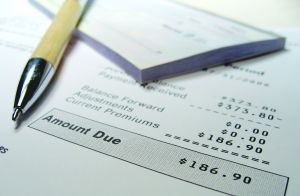As another Tax Appeal season is upon us, we would like to thank our clients and our appraisers for a great season of tax appeals. For the 2016 tax year, we saved our clients more than $12 Million in tax assessments. Starting on October 5, 2016, our office will begin accepting tax appeals for the 2017 tax year. Since all final judgments in Monmouth County are under the cloud of the new Assessment Demonstration Program, the following information is essential for all Monmouth County residents.
Monmouth County’s Assessment Demonstration Program was implemented in 2014, ostensibly as a means of ensuring that all taxpayers are paying their fair share of property taxes. Under the new program, property tax assessments are revised annually to bring every assessment to 100% of true market value, as established as of October 1 of the pretax year. The program also includes provisions to allow for a 5-Year Data Collection Cycle, thereby increasing the frequency at which property data would be collected or verified.
By conducting annual revaluations, the County will effectively remove “fractional assessments.” All properties in Monmouth County will now be assessed at 100% of true market value. The old system of dividing an assessment by the town’s equalization ration to determine the true value assessment would, therefore, no longer be necessary in Monmouth County. Similarly, the arithmetic process of adding 15% to the equalization ratio to determine whether the assessment is within the “Chapter 123 corridor” is also not necessary. However, with annual revaluations comes a consequence for all taxpayers who had previously filed appeals.
 New Jersey Real Estate Attorney Blog
New Jersey Real Estate Attorney Blog




 For taxpayers in Mercer, Middlesex and Monmouth Counties, who have matters pending before the
For taxpayers in Mercer, Middlesex and Monmouth Counties, who have matters pending before the  Our firm’s County Tax Appeals for the 2015 Tax Year have concluded. We are pleased to report that this year, we have reduced the assessments for our tax appeal clients by more than $5.1 Million. In more than 70% of our concluded matters, we were able to reduce the assessments for our clients. In Monmouth County, our appeals in Sea Girt had the largest margin of savings, averaging more than $150,000 per property. In Asbury Park, where a revaluation was recently conducted, assessments did not vary substantially from true market values. In Middlesex County, our concluded matters yielded an average assessment reduction of 24% of assessed value.
Our firm’s County Tax Appeals for the 2015 Tax Year have concluded. We are pleased to report that this year, we have reduced the assessments for our tax appeal clients by more than $5.1 Million. In more than 70% of our concluded matters, we were able to reduce the assessments for our clients. In Monmouth County, our appeals in Sea Girt had the largest margin of savings, averaging more than $150,000 per property. In Asbury Park, where a revaluation was recently conducted, assessments did not vary substantially from true market values. In Middlesex County, our concluded matters yielded an average assessment reduction of 24% of assessed value. Since 2004,
Since 2004,  Our office previously reported on the changes in how Monmouth County’s tax appeals are scheduled. In order to ensure that all County Tax Appeals are heard and resolved prior to the finalization of municipal budgets, Monmouth County had implemented a new calendar that requires tax appeals to be filed by January 15. In this week’s article, we will highlight an additional change in Monmouth County’s approach to tax assessments.
Our office previously reported on the changes in how Monmouth County’s tax appeals are scheduled. In order to ensure that all County Tax Appeals are heard and resolved prior to the finalization of municipal budgets, Monmouth County had implemented a new calendar that requires tax appeals to be filed by January 15. In this week’s article, we will highlight an additional change in Monmouth County’s approach to tax assessments. As we enter the 2015 tax appeal season, we have fielded hundreds of phone calls from property owners who are interested in filing appeals. Since the determination of whether a property has been over-assessed is not always apparent without an appraisal, we have taken the time to discuss the questions presented by each caller before determining whether we would accept the matter, or reject the matter, or whether we would immediately assign the matter to one of our appraisers for a more definitive opinion as to whether the tax appeal is worthwhile for both our office and the taxpayer. During this process, the taxpayers have asked us many recurring questions. The following is a list of three frequently asked questions, along with our answers:
As we enter the 2015 tax appeal season, we have fielded hundreds of phone calls from property owners who are interested in filing appeals. Since the determination of whether a property has been over-assessed is not always apparent without an appraisal, we have taken the time to discuss the questions presented by each caller before determining whether we would accept the matter, or reject the matter, or whether we would immediately assign the matter to one of our appraisers for a more definitive opinion as to whether the tax appeal is worthwhile for both our office and the taxpayer. During this process, the taxpayers have asked us many recurring questions. The following is a list of three frequently asked questions, along with our answers: Between the 21 vicinages of the New Jersey Superior Court, thousands of employees are on staff, performing a variety of functions. Despite streamlining and reductions in workforce, the operation of the Courts remains a very expensive process, and the filing fees, which have not been increased in more than 10 years, are not sufficient to cover the expense of running the Courts. Under the circumstances, an increase in filing fees seems rather necessary to ensure that the Courts will remain properly funded. Accordingly, on August 11, 2014, the State of New Jersey Supreme Court received authorization from the legislature to enact a comprehensive set of fee increases, affecting all divisions of the Superior Courts. The proposed increases, which are projected to be enacted into law on November 17 are currently in a review process and the
Between the 21 vicinages of the New Jersey Superior Court, thousands of employees are on staff, performing a variety of functions. Despite streamlining and reductions in workforce, the operation of the Courts remains a very expensive process, and the filing fees, which have not been increased in more than 10 years, are not sufficient to cover the expense of running the Courts. Under the circumstances, an increase in filing fees seems rather necessary to ensure that the Courts will remain properly funded. Accordingly, on August 11, 2014, the State of New Jersey Supreme Court received authorization from the legislature to enact a comprehensive set of fee increases, affecting all divisions of the Superior Courts. The proposed increases, which are projected to be enacted into law on November 17 are currently in a review process and the